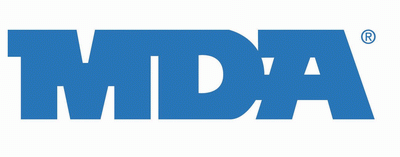Remember the Maine
Posted: Thursday, February 25, 2010 by Travis Cody in On 15 February 1898, the battleship USS Maine exploded and sank in Havana Harbor. The sinking led to war between Spain and the US, behind the American rallying cry "Remember the Main".
On 15 February 1898, the battleship USS Maine exploded and sank in Havana Harbor. The sinking led to war between Spain and the US, behind the American rallying cry "Remember the Main".
Most investigations agree that the cause of the disaster was the detonation of the ship's powder magazines, but experts disagree as to what may have ignited the charges. In 1898, a Naval court of inquiry concluded that an underwater mine exploded directly underneath the Maine, which then ignited the powder magazines and destroyed the ship. The court assigned no blame, citing lack of evidence.
But in 1898, there was an element in the US desirous of war with Spain. The sinking of the Maine, and the findings of the court of inquiry, seemed to point to the Spanish as the perpetrators of a sneak attack on the US. Although the McKinley administration did not cite the sinking of the Maine as a central factor in the decision to go to war, war nonetheless was declared in April 1898. A subsequent court of inquiry in 1911 supported the original conclusions of the 1898 court.
Spain conducted its own inquiry into the incident, concluding that a coal bunker near the powder magazines had somehow spontaneously combusted and caused the munitions to explode. The report argued in part that there had been no dead fish found floating in the harbor after the explosion, and that no witnesses had reported any columns of water. Either of those things might be evidence of an underwater explosion. Two subsequent investigations, in 1976 and 1999, came to different conclusions than the earlier inquiries. Neither investigation could examine the physical wreckage, as that had been removed during the 1911 review. Each team had to rely on documented testimony, drawings, maps, photographs, and scientific recreations to try and determine what happened. The 1976 analysis agreed more with the Spanish investigation, proposing that an internal fire within a coal bunker likely caused the powder magazines to explode. However this analysis was inconclusive as to what may have caused the fire.
Two subsequent investigations, in 1976 and 1999, came to different conclusions than the earlier inquiries. Neither investigation could examine the physical wreckage, as that had been removed during the 1911 review. Each team had to rely on documented testimony, drawings, maps, photographs, and scientific recreations to try and determine what happened. The 1976 analysis agreed more with the Spanish investigation, proposing that an internal fire within a coal bunker likely caused the powder magazines to explode. However this analysis was inconclusive as to what may have caused the fire.
In 1999, National Geographic used new techniques in computer modeling to examine the evidence. The conclusion agreed with the Spanish and the 1976 investigations, that an undetected coal fire smoldering near the munitions ignited coal dust and caused several small explosions that ultimately touched off the fatal explosion of the powder magazines. Even so, Advanced Marine Enterprises, the entity that commissioned the NatGeo study, does consider it probable that an external explosion of a mine could have caused the damage done to Maine's hull.
I suppose proponents of both explanations for the sinking of the Maine can claim that their theory is correct. But it doesn't seem that we'll ever really know whether the destruction of the ship was due to sabotage or accident. Some still suggest a "false flag conspiracy", arguing that an imperialist United States, focused on annexing Cuba as an American territory, planted the bombs and destroyed the Maine to garner support for war with Spain. However, it should be noted that the US held to the Teller Amendment and did not attempt to annex Cuba during the years of occupation after the Spanish-American war. We do know that 266 crew members died when USS Maine was destroyed. And we know that the disaster was used as a rallying cry to push for war.
We do know that 266 crew members died when USS Maine was destroyed. And we know that the disaster was used as a rallying cry to push for war.
And I know that each time I do one of these basic essays, my interest in learning more becomes more pronounced.

















Now this is a post after my own heart! Thank you, Travis, for the history lesson and you're right, I don't think we will ever know what it was that caused that fatal explosion no matter how many theories there are out there.